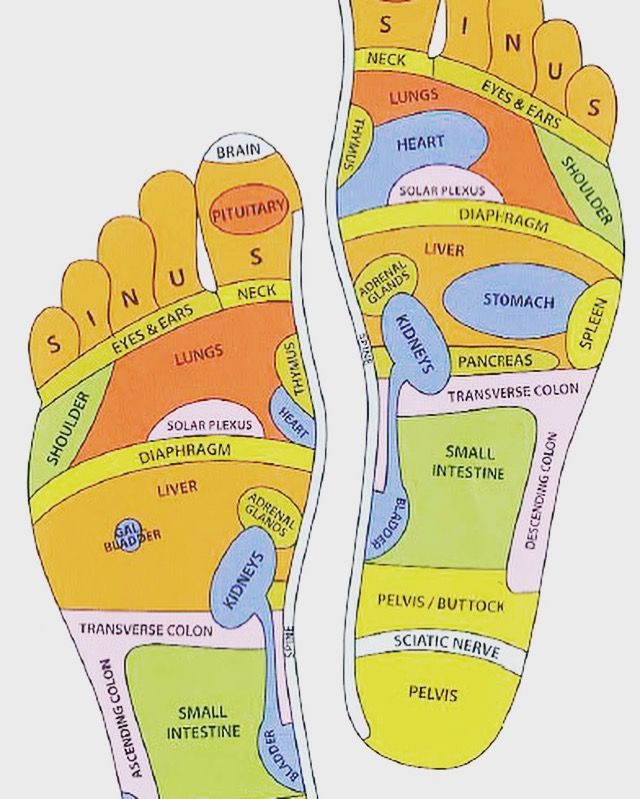While foot reflexology is a popular alternative therapy with a long history, it's important to note that the scientific evidence supporting its specific mechanisms and efficacy is limited. The practice is rooted in traditional Chinese medicine and the belief that specific reflex points on the feet correspond to various organs and systems in the body. While there is anecdotal evidence supporting its benefits, more research is needed to fully understand the science behind foot reflexology. Here are some points to consider:
Reflex Zones:
Proponents of reflexology claim that specific zones or points on the feet correspond to different parts of the body, and by stimulating these areas, practitioners can influence the corresponding organs and systems. However, the precise mapping of reflex zones lacks scientific validation.

Stimulation of Nerve Endings:
It is proposed that applying pressure to the reflex points stimulates nerve endings in the feet, sending signals to the central nervous system. This is thought to have a balancing effect on the body's functions. However, the specific neural pathways involved in these effects are not well-documented.
Endorphin Release
Pressure applied to the reflex points may trigger the release of endorphins, which are natural painkillers and mood enhancers. This could explain the relaxation and stress-reducing effects reported by individuals undergoing reflexology. However, more research is needed to understand the exact biochemical processes at play.

Circulation Improvement
It is suggested that foot reflexology may enhance blood circulation, promoting better oxygenation and nutrient delivery to tissues. While some studies have shown localized increases in blood flow during reflexology sessions, the overall systemic effects are not well-established.
Placebo Effect
The perceived benefits of foot reflexology may, in part, be attributed to the placebo effect—when individuals experience improvements in their condition due to their belief in the efficacy of the treatment. Placebo responses can have real physiological effects, and they are common in many complementary and alternative therapies.
Relaxation Response
The relaxation induced by foot reflexology may activate the parasympathetic nervous system, leading to reduced stress and improved well-being. The relaxation response is associated with various physiological changes, including lower heart rate and blood pressure.
While some studies have explored the effects of reflexology, the overall body of scientific evidence is limited, and more rigorous research is needed to establish its effectiveness and mechanisms of action. It's essential to approach foot reflexology with an open mind, recognizing that individual responses can vary, and the practice may offer relaxation and stress relief for some individuals, even if the specific reflexology maps lack scientific validation. If you are considering foot reflexology, it's advisable to consult with a qualified practitioner and to communicate with your healthcare provider, especially if you have any underlying health conditions.
Having a prescribed footwear and a perfect foot reflexology makes a healthy lifestyle for our foot. Our foot also need some health priority and concern from ourselves hence, every musculoskeletal problems originates from the distal part has foot area. Being aware and making aware is more important.
Author
Dr. DURGA SARAVANAN (PT., MSc Sports biomechanics and kinesiology)

